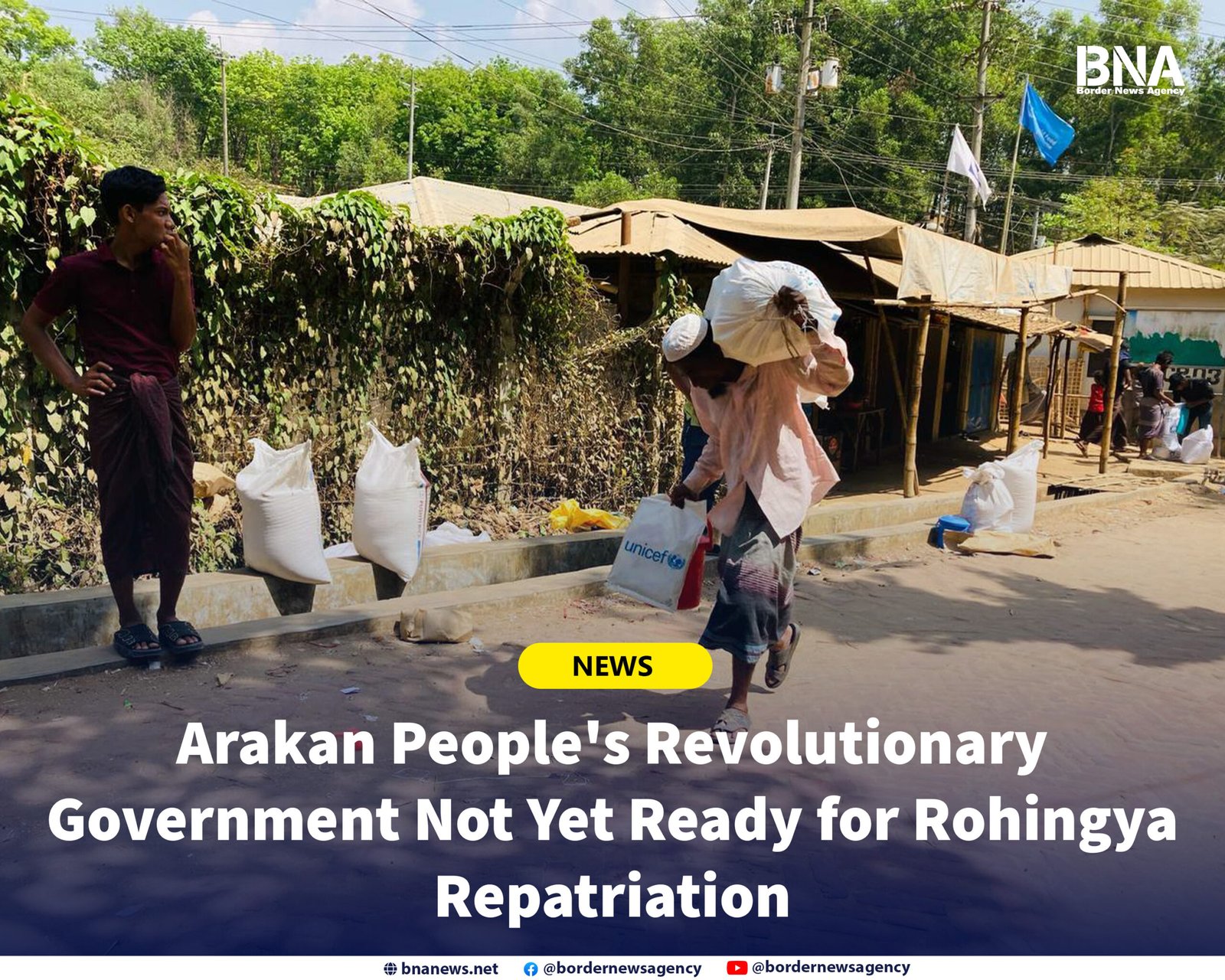Border News Agency
Maungdaw, May 24
Political analysts and local Arakanese say that the Arakan People’s Revolutionary Government is not yet ready to accept the return of Rohingya refugees currently residing in camps in Bangladesh.
The Arakan Army (AA) has completely seized and controls the Arakan-Bangladesh border area and is now administering it under the Arakan People’s Revolutionary Government.
However, political analysts say that it is not yet possible to carry out repatriation efforts, as the war in Arakan has not fully ended and aerial attacks by the Myanmar junta are still ongoing.
“At a time when we are still resisting the illegitimate military regime that seized power, it’s not yet appropriate to begin accepting back the Muslim population who were unjustly killed and expelled by that same junta. The revolution is still ongoing, and this is a period of complexity that could lead to further complications. So, for now, repatriation and resettlement efforts are not feasible,” said U Wayama, a senior monk from the Spring Revolution Multi-Faith Network, in an interview with Border News Agency.
Although the Arakan Army (AA) has fully seized and taken control of the entire Arakan-Bangladesh border since December 8 of last year, local Arakanese say that cross-border violence involving armed groups claiming to represent the Rohingya still continues. They also note that there are still many unmet needs in areas such as repatriation, resettlement, and humanitarian assistance.
However, since the Arakan Army (AA) has now taken full control of the area, some refugees are hoping to return home and are expecting the Arakan People’s Revolutionary Government to facilitate their repatriation, according to the refugees.
They say they have been living under various hardships in the refugee camps for nearly eight years, and now they just want to go back to their place.
“We’ve been living in the refugee camp for eight years. Life here is not pleasant. It’s not peaceful here. We want to return to Myanmar. We heard that the Arakan Army has taken control of our homeland. If the Arakan Army allows us the opportunity, we want to return as soon as possible,” a Rohingya refugee from a camp in Bangladesh told Border News Agency.
Although the Arakan Army (AA) has fully seized and taken control of Maungdaw District, local Arakanese say that repatriation is still not possible due to ongoing violent attacks by so-called armed Rohingya groups, as well as continued aerial assaults by junta forces.
Border News Agency has learned that although the Arakan People’s Revolutionary Government and the Government of Bangladesh have been holding frequent meetings to discuss the Arakan-Bangladesh border situation, including the issue of Rohingya repatriation, no bilateral agreements have been reached so far.
Therefore, although the Arakan People’s Revolutionary Government led by the Arakan Army (AA) has not yet initiated a formal repatriation process, local Arakanese say that those who fled during the battles in Maungdaw District are being carefully screened and accepted back with understanding.
Political circles suggest that, in the long run, repatriation will need to be carried out after verifying whether those individuals are legitimate citizens of Myanmar. However, for now, they say that full-scale repatriation is not yet feasible.
“If they have lived in our country and are citizens, then of course they will have to be taken back. But whether the time is right now—that’s another matter. Accepting them is something we’ll have to do, because they have lived in our country. If they are citizens, they will be treated as such. If not, then there will be another procedure,” U Myo Kyaw, General Secretary of the Arakan League for Democracy, told Border News Agency.
International observers report that armed groups claiming to be Rohingya militants are regrouping and operating from refugee camps, and across both Arakan and Bangladesh, these armed factions have been involved in various acts of violence against civilians, including abductions, killings, as well as drug trafficking and other terrorist activities.






